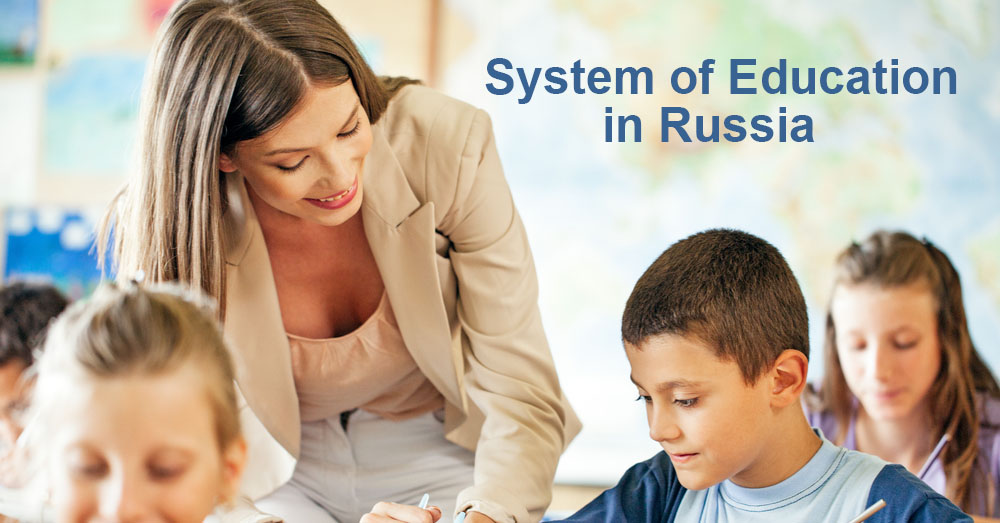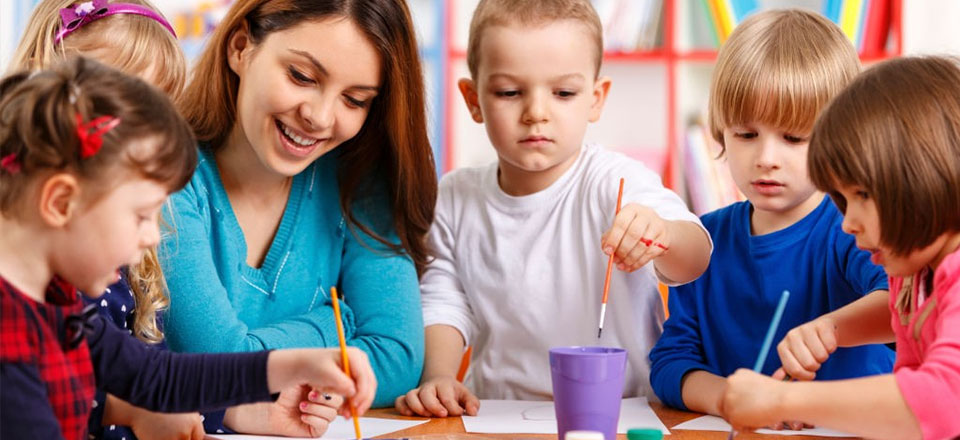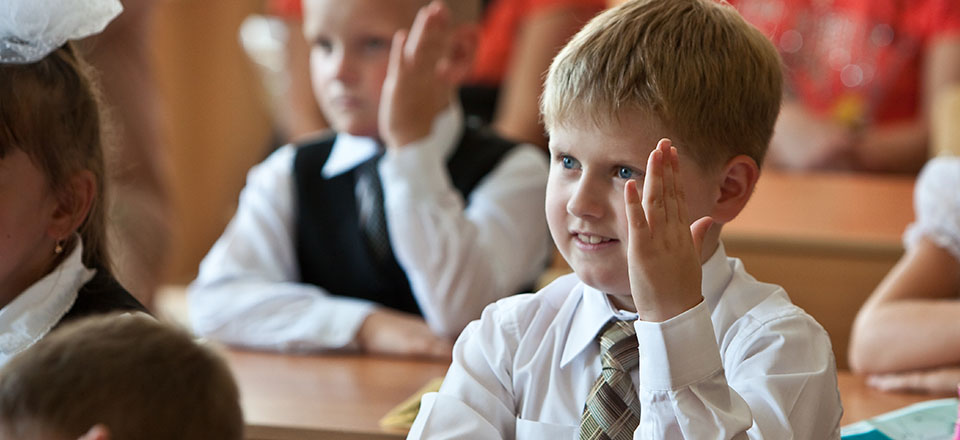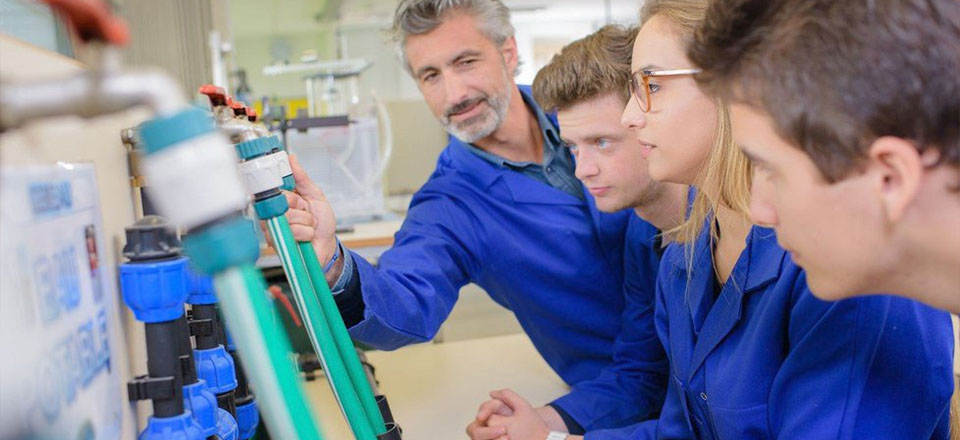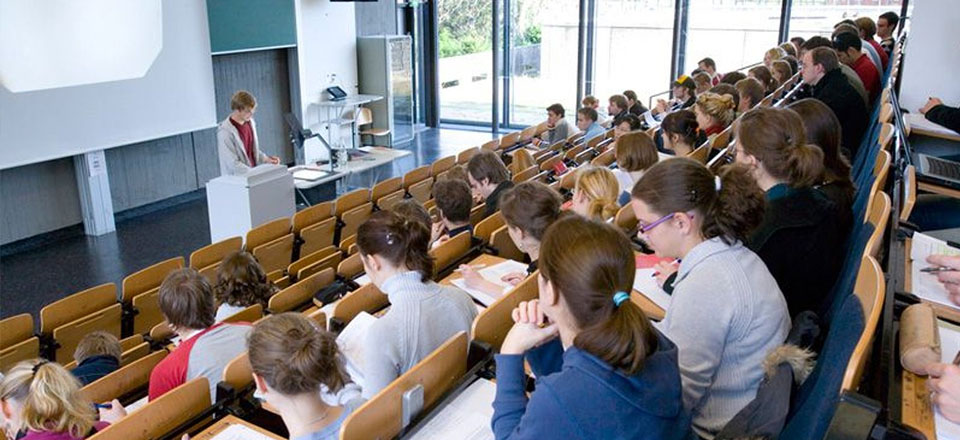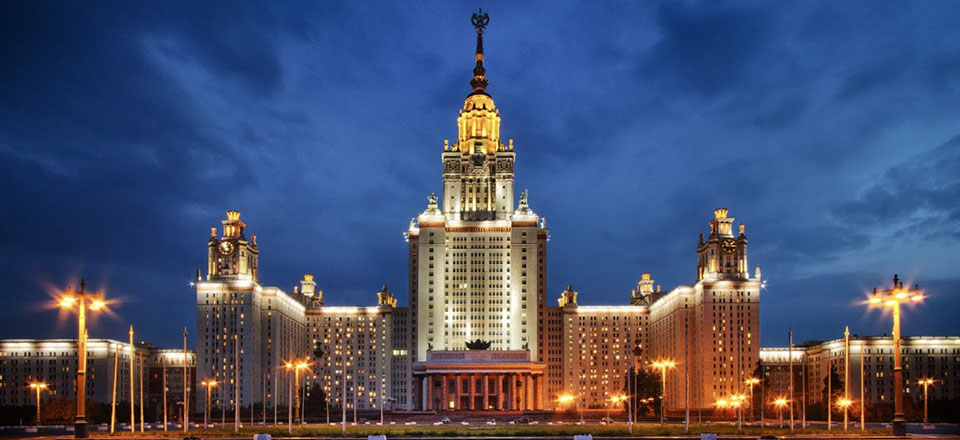Представлено сочинение на английском языке Образование в России/ Education in Russia с переводом на русский язык.
| Education in Russia | Образование в России |
| Education is an important part of modern life. Being educated means to know a lot of necessary and useful things for life, which is why every decent person studies at school. | Образование является важной частью современной жизни. Быть образованным, значит знать много необходимых и полезных вещей для жизни, и по этой причине каждый приличный человек учится в школе. |
| Originally Russian education starts from the early age. Children can start going to kindergarten from the age of two, but this is not a compulsory education. It depends on parents’ decision and child’s wish to attend this institution. However, school is mandatory. Every child starts going to school from the age of seven and till 16. | Изначально Российское образование начинается с раннего возраста. Дети могут начать ходить в детский садик с двух лет, но это не обязательное образование. Это зависит от решения родителей и желания детей посещать это заведение. Однако школа является обязательной. Каждый ребенок начинает ходить в школу с 6 лет и до 16. |
| Mandatory education in Russia is presented by three types of schools: primary, secondary and high. The primary school teaches its pupils elementary skills, such as reading, writing, counting. Many schools also offer foreign languages or some other special disciplines at this age. The most important period is the secondary school, which starts from the 4th or 5th grade, depending on school. This is the time when children start learning Biology, Geography, Chemistry, Physics, Computing, and many other new subjects. At the 9th grade children face a very important period in their life. They have to choose whether to continue school education, or to leave for other types of educational institutions, such as college, specialized schools and else. If the pupil decides to continue studying in high school, which lasts for two years, he can enter the university after school graduation. | Обязательное образование в России представлено тремя видами школ: начальная, средняя и старшие классы. Начальная школа учит своих учеников элементарным навыкам, среди них чтение, письмо, счёт. Многие школы также предлагают иностранные языки или другие специальные дисциплины в этом возрасте. Самый важный период, это средняя школа, которая начинается с 4-го или 5-го класса, в зависимости от школы. Это время, когда дети начинают учить такие предметы, как биология, география, химия, физика, информатика и некоторые другие новые предметы. В 9-м классе дети сталкиваются с очень важным периодом в своей жизни. Им приходиться выбирать либо продолжать школьное образование, либо уйти в другие виды образовательных учреждений, такие как колледж, училище и другие. Если ученик решает продолжить учебу в старших классах, которые длятся два года, он может поступить в университет по окончании школы. |
| Of course, it’s only the general pattern of education in Russia, but there can also be some exceptions nowadays. For example, there are lots of special schools, where they pay attention only to particular subjects. Also, apart from state schools, there are a number of private schools, where education is not free of charge. | Конечно же, это всего лишь общая характеристика образования в России, но в нынешнее время могут быть некоторые исключения. Например, существует множество специализированных школ, в которых уделяется внимание только определенным предметам. Также, помимо государственных школ, существует целый ряд частных школ, где образование не бесплатное. |
Сочинение на тему “Образование в России” на английском языке с переводом на русский язык |
|
Education in Russia |
Образование в России |
|
Education is a significant part of the life. There are many kinds of education: it can be self-education, school education, higher education and so on. Anyway, every kind of education gives us much experience and much knowledge which are connected not only with particular science or scientific field but also with our understanding of the world and of the people’s relationships. |
Образование является важной частью жизни. Существует много видов образования: самообразование, школьное образование, высшее образование и т.д. В любом случае, каждый вид образования дает нам много опыта и много знаний, которые связаны не только с конкретной наукой или научной областью, но и с нашим пониманием мира и отношений между людьми. |
|
The system of education varies from country to country. What is the system of education in Russia? First of all, it is divided into several groups: general education, further education and supplementary education. |
Система образования в каждой стране разная. Какая система образования в России? Прежде всего, образование разделено на несколько групп: общее образование, высшее образование и дополнительное образование. |
|
General education aimed to develop the personal qualities, basic knowledge and skills is divided into four groups: preschool education, elementary education, basic general education and secondary general education. Children who are from the age of two months to the age of seven years can go to preschool institutes. Then children who are from the age of six years and a half to the age of eight years begin to go to elementary school. It is a compulsory step of general education and it lasts four years. The following stage of education – basic general education – lasts five years. After that pupils can have secondary general education which lasts two years or go to institutions of tertiary education. |
Общее образование, направленное на развитие личных качеств, базовых знаний и навыков, подразделяется на четыре группы: дошкольное, начальное, основное общее и среднее общее. Дети, которые в возрасте от двух месяцев до семи лет могут поступить в дошкольные учреждения. Затем дети, которые в возрасте от шести с половиной до восьми лет, начинают ходить в начальную школу. Это обязательный шаг общего образования, и он длится четыре года. Следующий этап обучения – основное общее образование – длится пять лет. После этого ученики могут получить среднее общее образование, которое длится два года, или поступать в учреждения среднего и высшего образования. |
|
Further education includes tertiary education, bachelor’s degree, specialist degree, master’s degree and postgraduate degree. Also it is possible both for children and adults to have the supplementary education. |
Высшее образование включает среднее профессиоанльное образование, бакалавриат, специалитет, магистратуру и аспирантуру. Также возможно как для детей, так и для взрослых, получить дополнительное образование. |
Словарь
- exception [ɪkˈsepſ(ə)n] — исключение;
- compulsory [kəmˈpʌlsərɪ] — обязательно;
- skill [skɪl] — мастерство;
- to depend [dɪˈpend] — зависить;
- mandatory [ˈmændətərɪ] — обязательный;
Education is an important part of modern life.
Originally Russian education starts from the early age. Children can start going to kindergarten from the age of two, but this is not a compulsory education. It depends on parents’ decision and child’s wish to attend this institution.
In the Russian Federation the school education is compulsory. Pupils start going to school from the age of seven and till 16.
Mandatory education in Russia is presented by three types of schools: primary, secondary and high.
The primary school teaches its pupils elementary skills, such as reading, writing, counting. Many schools also offer foreign languages or some other special disciplines at this age.
The most important period is the secondary school, which starts from the 4th or 5th grade, depending on school. This is the time when children start learning Biology, Geography, Chemistry, Physics, Computing, and many other new subjects.
At the 9th grade children face a very important period in their life. They have to choose whether to continue school education, or to leave for other types of educational institutions, such as college, specialized schools and else. If the pupil decides to continue studying in high school, which lasts for two years, he can enter the university after school graduation.
Of course, it’s only the general pattern of education in Russia, but there can also be some exceptions nowadays. For example, there are lots of special schools, where they pay attention only to particular subjects. Also, apart from state schools, there are a number of private schools, where education is not free of charge.
When they complete high grades they can either continue to study at school for more 2 years, or go to a professional school where they study not only main subjects, but are able to learn some profession. When school pupils leave school they can try to continue their educaton in institutes or universities.
Топик «Образование в России» (Education in Russia) — 4.3 out of
5
based on
54 votes
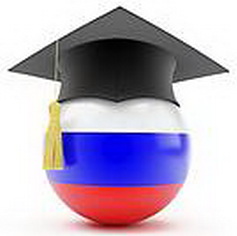
The Russian children usually start to go to school when they are seven years old. First the children learn at the elementary school. They visit the elementary school for four years. The children get there the elementary education. It means they learn to count, to read and to write. In the most schools the children also learn a foreign language beginning from the second form.
Русские дети обычно начинают ходить в школу, когда им исполняется семь лет. Сначала дети учатся в начальной школе. Начальную школу они посещают в течение четырех лет. Там они получают начальное образование. Это значит, что они учатся считать, читать и писать. В большинстве школ дети также начинают изучать иностранный язык, начиная со второго класса.
The fifth form means the beginning of the secondary education. The children learn different subjects, for example Biology, Literature, Chemistry, Physics, Informatics. In Russia the nine-year basic incomplete secondary education is compulsory. After that the children have to decide what they will do from now forth. On the one hand, they can continue their schooling and get the complete eleven-year secondary education. On the other hand, they can enter a college giving them the complete secondary education and trade training. After graduating from college the young people became financially independent and can start to work.
Пятый класс означает начало получения среднего образования. Дети изучают различные предметы, например, биологию, литературу, химию, физику, информатику. В России обязательным является девятилетнее незаконченное среднее образование. После этого дети должны решить, что они будут делать в дальнейшем. С одной стороны, они могут продолжить свою учебу в школе и получить одиннадцатилетнее законченное среднее образование. С другой стороны, они могут поступить в какой-либо колледж, который даст им и законченное среднее образование, и обучение по специальности. После окончания колледжа молодые люди становятся независимыми в финансовом отношении и могут начинать работать.
Currently there are different types of schools in Russia. The children and their parents can choose a regular school, a school with advanced study of some subject, a private school. Private schools in Russia are always fee-paying.
В настоящее время в России существуют разные типы школ. Дети и их родители могут выбрать общеобразовательную школу, школу с углубленным изучением какого-либо предмета, частную школу. Частные школы в России всегда платные.
After graduating from school or college our young people can enter universities or institutes, where they get higher education.
После окончания школы или колледжа молодые люди могут поступать в университеты или институты, где они получают высшее образование.
| Янв 13, 2016 | Английские темы, топики, сочинения |
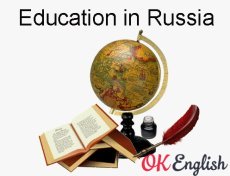
Топик (сочинение) по английскому языку на тему Education in Russia — Образование в России
Education plays a very important role in our life. It is one of the most valuable possessions a man can get in his life.
The literacy rate in Russia is almost 100%. Half of Russia’s adults has at least college education. So Russia has the highest college-level education in the world.
Russia has pre-school educational system. About 2/3 of children aged 5 attend kindergartens. Since the age of 6 or 7 children attend school. Eleven-year secondary education in Russia is compulsory. School term has 3 stages: elementary (grades 1-4), middle (grades 5-9) and senior (grades 10-11) classes.
Before 1990 the course of school training was 10-years, but since 1990 school study lasts for 11 years. Education in state schools is free. Male and female students have equal rights in all stages of education.
The school year starts in September 1 and finishes in May. It is divided into four terms. Study programme in schools is fixed. It means that schoolchildren can’t choose subjects they want to study.
When children finish school, they have to pass the Unified state examination (USE). It’s the set of standardised tests.
University level of education in Russia is high. The country inherited a system of high level of education from the Soviet Union.
A student can continue his/her education in colleges and universities.
| Education in Russia | Образование в России |
| Education plays a very important role in our life. It is one of the most valuable possessions a man can get in his life. | Образование играет очень важную роль в нашей жизни. Это одна из самых ценных вещей, которую человек может получить в своей жизни. |
| The literacy rate in Russia is almost 100%. Half of Russia’s adults has at least college education. So Russia has the highest college-level education in the world. | Уровень грамотности в России практически 100%. Половина взрослого населения имеет как минимум профессиональное образование. Так что Россия имеет самый высокий уровень среднего профессионального образования в мире. |
| Russia has pre-school educational system. About 2/3 of children aged 5 attend kindergartens. Since the age of 6 or 7 children attend school. Eleven-year secondary education in Russia is compulsory. School term has 3 stages: elementary (grades 1-4), middle (grades 5-9) and senior (grades 10-11) classes. | Россия имеет систему дошкольного образования. Около 2/3 детей 5-летнего возраста посещают детские сады. С возраста 6-7 лет дети посещают школу. В России обязательное 11-летнее школьное образование. Школа делится на 3 ступени: начальная (1-4 класс), средняя (5-9 класс), полная (10-11 классы). |
| Before 1990 the course of school training was 10-years, but since 1990 school study lasts for 11 years. Education in state schools is free. Male and female students have equal rights in all stages of education. | До 1990 года длительность школьного образования составляла 10 лет, но с 1990 школа длится 11 лет. Образование в государственных школах бесплатное. Учащиеся мужского и женского пола имеют равные права на всех стадиях образования. |
| The school year starts in September 1 and finishes in May. It is divided into four terms. Study programme in schools is fixed. It means that schoolchildren can’t choose subjects they want to study. | Школьный год начинается 1 сентября и заканчивается в мае. Он делится на 4 четверти. Школьная программа единая для всех. Это значит, что школьники не могут выбирать, какие предметы учить. |
| When children finish school, they have to pass the Unified state examination (USE). It’s the set of standardised tests. | Когда дети заканчивают школу, они должны пройти Единый государственный экзамен (ЕГЭ). Они представлены в виде стандартизированных тестов. |
| University level of education in Russia is high. The country inherited a system of high level of education from the Soviet Union.A student can continue his/her education in colleges and universities. | Уровень высшего образования в России высокий. Эта страна унаследовала систему полного образования от Советского Союза.Студент может продолжить образование в разного рода колледжах и университетах. |
Английские темы, топики, сочинения для школьников и студентов
Education plays a very important role in our life. It is one of the most valuable possessions a man can get in his life.
During all the periods of human history education ranked high among people. Human progress mostly depended upon well-educated people. We get our knowledge of this world and life through education. Many famous discoveries would have been impossible if people were not interested in learning something. Self-education is very important for the development of human’s talents. Only through self-education a person can become a harmonically developed personality.
A person becomes a highly qualified specialist after getting some special education. And professionalism can be reached only through it. Even highly qualified specialists from time to time attend refresher courses to refresh their knowledge.
Education develops all sides of human personality, reveals his abilities. Besides, it helps a person to understand himself, to choose the right way in this world. The civilized state differs from others in the fact that it pays much attention to the educational policy. John Kennedy said: “Our progress as a nation can be no swifter than our progress in education”. But it doesn’t concern only one particular nation. We know that science and art belong to the whole world. Before them the barriers of nationality disappear. So education brings people closer to each other, helps them to understand each other better.
Перевод:
Образование играет очень важную роль в нашей жизни. Это одна из самых ценных вещей, которую человек может получить в своей жизни.
В течение всех периодов человеческой истории образования имело высокий рейтинг среди населения. Человеческий прогресс в основном зависит от хорошо образованных людей. Мы получаем наши знания о мире и жизни посредством образования. Многие известные открытия были бы невозможны, если бы люди не были заинтересованы научиться чему-то. Самообразование имеет большое значение для развития человеческих талантов. Только путем самообразования человек может стать гармонично развитой личностью.
Человек становится высококвалифицированным специалистом после получения специального образования. А профессионализм может быть достигнут только через него. Даже высококвалифицированные специалисты, время от времени посещают курсы повышения квалификации для обновления своих знаний.
Образование развивает все стороны человеческой личности, раскрывает его способности. Кроме того, оно помогает человеку понять самого себя, чтобы выбрать правильный путь в этом мире. Цивилизованное государство отличается от других в том, что он уделяет большое внимание образовательной политике. Джон Кеннеди сказал: “Наш прогресс как нации не может быть быстрее, чем наш прогресс в образовании”. Но это касается не только одной конкретной нации. Мы знаем, что наука и искусство принадлежит всему миру. Перед ними барьеры национальностей исчезают. Так образование объединяет людей, помогает им лучше понимать друг друга.
The System of Education in Russia
The system of
education in Russia is very much the same as in other highly
developed countries. It is based on the Soviet education, but it
has been gradually changing since the creation of the new
Russian state.
There are nurseries and kindergartens for little children aged
from 2 to 6. The level of kindergartens has become considerably
higher in recent years. Children play games, go for walks, have
regular meals there. But the lessons of reading, arithmetic,
drawing and other subjects have become more complicated than
they were in the kindergartens ten years ago. There are the
kindergartens where children learn foreign languages.
At the age of 6 or 7 Russian children go to secondary schools.
Our children are also streamed into different forms according to
their abilities. There are forms А, В and so on. The forms under
the first two letters of the alphabet are for the cleverest
pupils. The level of education in Russian secondary schools is
rather high. Children receive primary education during the first
three or four years. Then they enter the middle school, usually
without any examinations. The pupils of the middle schools study
Russian and foreign languages, Russian literature, algebra,
geometry, physics, chemistry and biology. They have their final
examinations in the ninth form. Then the pupils may leave school
and enter some professional college or receive full-time
secondary education in the tenth and eleventh forms. The program
of the last two years is the most complicated one. Besides the
subjects mentioned above, it often includes trigonometry,
organic chemistry and astronomy. Pupils get the necessary
knowledge for entering the universities and institutes. There
are some special schools where pupils have advanced programs in
physics, mathematics or foreign languages.
Every city in Russia has at least one university and several
institutes. The oldest Russian universities are the Moscow State
University, the University of St. Petersburg and some others.
Система образования в России
Система образования в России подобна
системам образования в других высокоразвитых странах. Она
основана на советском опыте, но постоянно меняется с тех пор,
как возникло новое Российское государство.
Для детей от 2 до 6 лет существуют ясли и детские сады. Уровень
детских садов значительно возрос. Дети играю, гуляют, получают
регулярное питание, но уроки чтения, арифметики, рисования и др.
стали более сложными, чем в детских садах десять лет назад. Есть
детские сады, где дети изучают иностранные языки.
В возрасте 6—7 лет российские дети идут в среднюю школу. Наши
дети также делятся на разные уровни по способностям. Это классы
А, Б и т. д. Классы под первыми двумя буквами для наиболее
способных учеников. Уровень обучения в российских средних школах
довольно высок. Дети получают начальное образование в течение
первых трех-четырех лет. Потом они переходят на средний этап
обучения, обычно без экзаменов. Ученики среднего этапа изучают
русский и иностранные языки, литературу, алгебру, геометрию,
физику, химию, биологию. В девятом классе они сдают экзамены.
Потом ученики могут уйти из школы и поступить в какой-нибудь
профессиональный колледж или получить полное среднее образование
в десятом и одиннадцатом классах. Программа последних двух лет
самая сложная. Кроме предметов, перечисленных выше, она часто
включает в себя тригонометрию, органическую химию и астрономию.
Ученики получают знания, необходимые для поступления в высшие
учебные заведения.
Существуют некоторые специализированные школы, где ученики
обучаются по углубленным программам по физике, математике или
иностранным языкам.
В каждом российском городе есть по меньшей мере один университет
и несколько институтов. Старейшие российские университеты — это
Московский государственный университет, университет
Санкт-Петербурга и некоторые другие.
Questions:
1. Is the system
of education in Russia highly developed?
2. What establishments are organized for children from 2 to 6?
3. What do children do in the kindergartens?
4. What subjects do they study?
5. Did you learn any foreign language in the kindergarten?
6. What age is the compulsory school age in Russia?
7. Are Russian children streamed into different forms as in
British schools?
8. How many years does the primary school include?
9. Should children pass any examinations entering the middle
school?
10. What subjects do pupils of the middle school study?
11. When do they pass examinations?
12. Can pupils leave school after the ninth form?
13. How many years do they attend school to receive full-time
secondary education?
14. What subjects do they study during the final two years?
15. Are there any special schools with advanced programs in your
native city?
16. Are there many higher educational establishments in Russia?
17. Is there a university in your native city?
Vocabulary:
gradually постепенно
creation создание
nursery ясли
considerably значительно
full-time secondary education полное среднее образование
besides кроме
mentioned упомянутый
trigonometry тригонометрия
organic chemistry органическая химия
entry поступление
advanced продвинутый, углубленный
at least no меньшей мере
Types of Education in Russia
There are different levels of education in our country: pre-school, primary, secondary and a higher one.
Pre-school education comprises nurseries and kindergartens. Children there are looked after by professional nannies and educators. Often they are taught to read and count.
There are different kinds of schools in Russia. All schools begin with primary education. It lasts up to the 5th form. The majority of pupils go to secondary schools, others choose lyceums, gymnasiums, specialized schools. If pupils finish a secondary school successfully, they get a secondary education certificate. It gives them an opportunity to enter a university or an academy which are the institutions of a higher education.
Higher education institutions nowadays prepare Specialists, Masters and Doctors. A diploma of a higher education makes it possible to find a better job.
Types of Education in Other Countries
The systems of education are not similar in different countries. In Britain there are three stages of schooling. The British have primary school, secondary school and post-secondary education. The latter includes further and higher education.
In the USA the system of education is very decentralized. That means every state has its own education laws. Generally they have got elementary schools (6-11 years), intermediate schools (11-15 years) and senior high schools (9-12 grades). There are several ways to continue education: universities, colleges, community colleges, technical and vocational schools.
Важность образования
Невозможно переоценить важность образования в современном мире. Образование стало ведущей силой технологического прогресса и тем самым всего развития человечества.
Education in Russia
It is widely
known that education helps to form the personality and prepares
one for life. That is why all countries consider the system of
education a very important part of national politics.
It Russia, everyone has the right to receive education
guaranteed by the Constitution. This right is realized by the
broad development of compulsory secondary education, vocational,
specialised secondary and higher education and also by the
development of a system of scholarships, grants, evening and
correspondence courses. In Russia there is nine-year compulsory
education, but to enter a university one has to study two years
more. School starts at the age of six for Russian children. But
most of them lear letters in kindergarden which is now part of
primary school. Primary and secondary schools together comprise
eleven years of study. Every school has a «core curriculum» of
Russian, Mathematics, Science, Physical Education. A variety of
elective subjects are taught at lyceums and gymnasiums.
After finishing secondary school, lyceum or gymnasium one can go
on to higher education. All applicants must take competitive
examinations. Higher education institutions train undergraduate
and graduate students in one or several specializations. The
system of higher education in Russia is going through a
transitional period. The main objectives of the reform are:
decentralization of the higher education system, development of
autonomy in higher education institutions, expansion of academic
freedoms for faculties and students, deveopment of new financial
mechanisms. All Russian schools until recently have been
grant-maintained.
Образование в России
Общеизвестно, что образование
помогает сформировать личность и готовит к жизни. Поэтому все
страны считают систему образования важной частью национальной
политики.
В России каждый имеет гарантированное Конституцией право на
образование. Это право обеспечено развитой системой
обязательного среднего образования, профессионального,
специального среднего и высшего образования, а также развитием
системы стипендий, дотаций, вечерних и заочных курсов. В России
существует девятилетнее обязательное образование, но, чтобы
поступить в университет, нужно учиться еще два года. Русские
дети идут в школу с шести лет. Но большинство из них учат буквы
в детском саду, который теперь является частью начальной школы.
Начальная и средняя школа вместе охватывают 11 лет учебы. У
каждой школы есть основной учебный план, включающий русский
язык, математику, естественные науки, физическое воспитание. В
лицеях и гимназиях обучают различным предметам по выбору.
После окончания средней школы, лицея или гимназии можно получить
высшее образование. Все поступающие должны пройти конкурсные
экзамены. Высшие учебные заведения готовят студентов и
аспирантов по одному или нескольким направлениям. Система
высшего образования в России находится в переходном периоде.
Основные цели реформы — это децентрализация системы высшего
образования, развитие автономии высших учебных заведений,
расширение академических свобод преподавательского состава и
студентов, развитие нового финансового механизма. До недавнего
времени все учебные заведения России находились на обеспечении
государства.
In our country we have got different types of education, for example: primary, secondary and higher education.
Children in Russia start school when they are six or seven years old. They go to a primary school until they are nine or ten. Then they go to a secondary school. They leave when they are sixteen or seventeen. When young people finish school they get school-leaving certificate. Next academic year young people can get a job or they can go to an institute or university. But same young men go to army.
In our country higher education is very expensive. But if you have got good mark for school state exams you can study free and even get scholarship. Higher education can be internal and correspondence formation. Special of kind education it is remote training. It is education when you can learn some subjects at home with the help of computer.
The higher education lasts on the average 5 years. At the finish young people have examinations and if they pass them successful they get diploma. When young people leave university, they can get a good job or go to another university and get secondary higher education.
I have passed three steps of education. I started my primary school when I was six and went to there until I was nine. Then I went to a secondary school and left it when I was sixteen. I had got good mark for school state exams and I went to internal university. Now I study free and even get scholarship. Now I finish the fifth year, soon I will leave university and get my diploma. Next academic year I want go to another second university. But it will be correspondence formation and I will can work and study.
In Russia we speak: “Training is light, and not training is darkness”. I think it a true saying.
В нашей стране у нас есть несколько типов образования, к примеру: начальное, среднее и высшее образование.
Дети в России идут в школу, когда им шесть или семь лет. Они ходят в начальную школу, до девяти лет или десяти. Затем они идут в среднюю школу. Они покидают ее, когда им становится шестнадцать или семнадцать лет. Когда молодые люди оканчивают школу, они получают аттестат об окончании школы. В следующем учебном году молодые люди могут устроиться работу или могут поступить в институт или университет. Но некоторые молодые юноши идут в армию.
В нашей стране высшее образование стоит очень дорого. Но если Вы получили хорошие отметки на школьных государственных экзаменах (ЕГЭ), Вы можете учиться бесплатно и даже получать повышенную стипендию.
Высшее образование различается на очное (дневное) и заочное обучение. Особый вид обучения это — дистанционное обучение. Это — образование, когда Вы можете изучить некоторые предметы дома с помощью компьютера.
Высшее образование длится в среднем 5 лет. В конце обучения молодые люди имеют экзамены и если они их сдают успешно, они получают диплом. Когда они покидают университет, они могут устроиться на хорошую работу или продолжить учиться в другом университете и получить второе высшее образование.
Я лично прошла три шага образования. Я пошла в начальную школу, когда мне было шесть лет, и ходила туда, пока мне не исполнилось девять лет. Затем я пошла в среднюю школу и покинула её, когда мне было шестнадцать лет. Я получила хорошие отметки на школьных государственных экзаменах, и я поступила в университет. Сейчас я учусь бесплатно и даже получаю повышенную стипендию. В данный момент времени я оканчиваю пятый курс обучения, скоро я покину университет и получу мой диплом.
В следующем учебном году я хочу поступить в другой университет. Но это будет заочное обучение, и я смогу совмещать работу и учёбу.
В России мы говорим: “Ученье — свет, а неученье — тьма “. Я думаю это верная поговорка.
Copyright © Russian centres of City and Guilds
The American system of school education differs from the systems in other countries.
There are state public schools, private elementary schools and private secondary schools. Public schools are free and private schools are feepaying. Each state has its own system of public schools.
Elementary education begins at the age of six or seven, when a child goes to the first grade (form). At the age of sixteen schoolchildren leave the elementary school and may continue their education at one of the secondary schools or high schools, as they call them.
The programme of studies in the school includes English, Arithmetic, Geography, History of the USA, Natural Sciences and, besides, Physical Training, Singing, Drawing, Wood or Metal Work, etc. Sometimes they learn a foreign language and general history. Beside giving general education some high schools teach subjects useful to those who hope to find jobs in industry and agriculture or who want to enter colleges or universities.
After graduating from secondary schools a growing number of Americans go on to higher education. The students do not take the same courses. During the first two years they follow a basic programme. It means that every student must select at least one course from each of the basic fields of study: English, Natural Sciences, Modern Languages, History or Physical Training. After the first two years every student can select subjects according to his professional interest.
The National Government gives no direct financial aid to the institutions of higher education. Students must pay a tuition fee. This creates a financial hardship for some people. Many students have to work to pay their expenses. The Americans place a high value on education. That’s why Kennedy said, “Our progress as a nation can be no swifter than our progress in education”.
Перевод:
Американская система школьного образования отличается от систем других стран.
Есть государственные общественные школы, частные начальные школы и частные средние школы. Государственные школы являются бесплатными, а частные школы -платные. Каждый штат имеет свою собственную систему общественных школ.
Начальное образование начинается в возрасте шести или семи лет, когда ребенок идет в первый класс. В возрасте шестнадцати школьники заканчивают начальную школу и могут продолжить свое образование в одной из средних школ или хай-скул, как они их называют.
Программа обучения в школе включает английский язык, арифметику, географию, историю США, естественные науки и, кроме того, физическую культуру, пение, рисование, труды и т. д. Иногда они изучают иностранный язык и общую историю. Кроме предоставления общего образования некоторые средние школы преподают предметы, полезные для тех, кто надеется найти рабочие места в промышленности и сельском хозяйстве или кто хочет пойти в колледжи или университеты.
После окончания средней школы все большее число американцев получает, высшее образование. Студенты не изучают одинаковые курсы. В течение первых двух лет они следуют основной программе. Это означает, что каждый студент должен выбрать по крайней мере один курс из общих отраслей науки: английский язык, естественные науки, современные языки, история и физическая культура. После первых двух лет каждый студент может выбрать предметы в соответствии с его профессиональными интересами.
Национальные правительства не дает прямой финансовой помощи учреждениям высшего образования. Студенты должны оплачивать обучение. Это создает финансовые трудности для некоторых людей. Многие студенты должны работать, чтобы оплатить свои расходы. Американцы придают большое значение вопросам образования. Вот почему Кеннеди сказал: “Наш прогресс как нации не может быть быстрее, чем наш прогресс в образовании”.
Education in Russia is a set of study programs which are compiled in accordance with the regulations on the state standard of education. However, the system of education in Russia has its special features which we are going to look closer at in this article.
Education in Russia includes several stages:
- Pre-school education
- General secondary education
- Vocational education
- Higher education
Pre-school Education
Pre-school education is a first stage in the system of education which is represented by crèches and kindergartens, less frequently by other educational institutions which look after children and provide education according to pre-school education program. Every parent is ensured with a possibility to send their child to one of these institutions.
Children can start going to crèches when they are 1-year old, and they can stay there until when they are 3 years old. After that, they go to kindergartens. Children complete their education at kindergartens at the age of 6 or 7. In Russia pre-school education is not compulsory, so parents decide if their children will attend a crèche or a kindergarten or they won’t.
Recently there also appeared pre-schools where children can go at the age of 5. There children learn basic reading and writing skills.
General Secondary Education
According to the law of the Russian Federation, general secondary education includes:
- Primary general secondary education (from 6 to 10 years of age, 1-4 grades)
- Basic general secondary education (from 10 to 15 years of age, 5-9 grades)
- Complete general secondary education (from 15 to 17years of age, 10-11 grades)
When a child turns 6 years old, he/she starts obtaining primary general education. Children can go to a school, gymnasium, or lyceum. Gymnasiums and lyceums are different from schools as they provide advanced training, or they introduce additional study subjects which will be useful for the students who are planning to enter higher educational institutions.
After completing primary secondary education, children at the age of 10 undergo basic general education. It lasts for 5 years. After grade 9 students receive certificate of general education which allows them to continue their education at grade 10 at school, gymnasium, or lyceum.
Complete general secondary education is the last stage of general education which lasts for 2 years. Then, at grade 11 students take examinations and receive certificates of complete general secondary education.
Vocational Education
After school children in Russia have a wide choice of educational institutions where they can obtain vocational education, whose aim is to train qualified workers.
After graduating grade 9 or 11, children can enter a technical school or college. There is one feature: if children enter a college or technical school after grade 11, their training will take shorter time, as they have already completed a program of general secondary education at grades 10 and 11.
In what way a college is different from a technical school?
The level of education at college is considered to be higher than at technical school, as the system of education there is similar to higher education. Technical schools are more specific, and the level of education there is considered to be basic.
Higher Education
In Russia, there is a 3-level higher education:
- Baccalaureate (4years)
This is a complete higher education. Students who have graduated general secondary school, or those who obtained vocational education can get admitted to bachelor’s course. After completing a bachelor’s program, graduates receive a diploma with their qualification.
- Specialist (5 years)
Unlike bachelor’s program, after graduating the specialist program, a graduate obtains a specialist diploma.
- Magistr (6 years)
Master’s program is a second level of higher education. Only students who already hold bachelor’s or specialist’s degrees can do master’s program. Doing a master’s program, you can expand your knowledge and improve your qualification in the profession you have already chosen.
Higher education is a final stage of education in Russia. According to the law of the Russian Federation institutes, universities, and academies are recognized as institutions of higher education.
Institute trains specialists in one sphere, for example, economics, psychology, or medicine. It is its peculiar feature.
University offers a wide range of specialties. At university, you can undergo training in various areas.
Academy, in turn, differs with its narrower set of specialties for one particular industry, for example, agricultural academy, mining academy, economic academy, etc.
There is also an incomplete higher education. Students study at least for two years, although they were not able to complete the full course.
In conclusion, we would like to mention that the system of education in Russia is organized in the way so any citizen of Russia who has a desire to study is provided with this opportunity. After all, if a person has certain knowledge, they can choose a school and a sphere that are really interested in.

